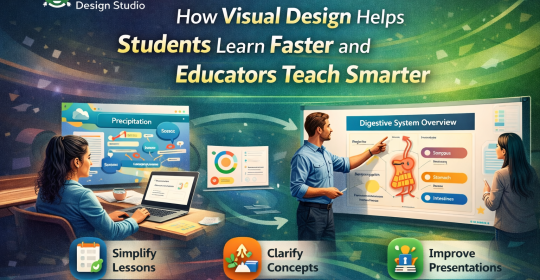And when hiring at a high volume, it can be challenging to manage the talent pool. Fortunately, a reliable set of technologies and processes will make the screening process much more manageable.
By streamlining this process, you can spend more time recruiting and interviewing top-notch talent — and less time sifting through technical tests and background checks. Here are some tips to screen and interview candidates more efficiently.
1. Optimize Skills Tests
Interviewing and screening best practices vary greatly by industry, but skills tests are often part of the process. Manually administering skills tests via email can be cumbersome, slowing down the interview timeline. Staffing agencies should use technology to administer skills assessments and vet candidates quickly.
Platforms that facilitate live skills tests are some of the most efficient screening tools available. For example, code interview technology allows interviewers to administer live programming tests to potential engineering hires. The recruiter or company creates a personalized coding environment, monitors the candidate’s work, and vets the engineer in real time. While the hiring manager can replay the coding test, they won’t have to wait days for a candidate to return a skills assessment.
2. Consider AI Screening
Artificial intelligence is another prominent player in the staffing industry. Agencies use AI tools to sift through résumés in seconds and speed up the first round of interviews. The key is to define a set of non-negotiable criteria and let the technology do the rest.
Today’s agencies are using two standout AI technologies in the hiring process: résumé screening and voice interview tools.
Résumé Screening
When a recruiter has a pile of résumés on their desk, it can be a challenge to sift through qualifications in a speedy and objective way. Fortunately, AI takes the guesswork out of the process. Agencies use AI-powered screening tools to sift through résumés by qualifications like job history, education level, and skills. Recruiters are left with a smaller pile of more specifically qualified candidates.
Voice Interviews
Video calls are the new norm for job interviews, and savvy agencies are using AI to decide which candidates qualify for that face time. AI voice interviews allow agencies to screen hundreds of candidates at once to better refine the initial talent pool.
During this screening, the AI program asks candidates a series of interview questions and records their answers. Some programs record video as well. The AI technology flags keywords, attributes, and facial expressions to narrow down job candidates for the next round of interviews.
While AI isn’t a replacement for human connection, this technology helps staffing agencies sift through the first round of applicants in a fraction of the time. And they do it without the implicit bias that humans may bring to the table. Job seekers enjoy a swift and hassle-free screening process, while companies trust that they’re bringing the most qualified candidates in for face-to-face interviews.
3. Use Scheduling Apps
Emailing back and forth to schedule an interview may be feasible when dealing with a small pool of candidates. However, manual scheduling simply isn’t practical when hiring at scale.
Scheduling apps streamline the interview process by directing candidates to book a time on the interviewer’s calendar. Both parties receive a link to a video call on their calendar app, so the logistics are set from the start.
When using self-service scheduling tools, you’ll spend more time on actual recruitment than emails. You can also set aside specific days for interviews and require candidates to book on those days. This leaves less lag time between interviews, so you can compare candidates more effectively.
4. Outsource Background Checks
If your company is performing in-house background checks, you might be wasting time and money. Hiring third-party companies for background screenings has a few key benefits. You ensure that you’re thoroughly screening job candidates while complying with employment laws. Plus, your in-house employees can focus on recruitment and manage day-to-day screening tasks. Just be sure to vet background check vendors for legal compliance and positive customer reviews.
5. Check In With Chatbots
As job candidates move through the interview process, they’ll likely check in with the hiring company or staffing agency periodically. Responding to these inquiries shows respect for the candidate, but it can also be time-consuming on your end. This is where chatbots come in SDMoviesPoint.
Chatbots instantly update candidates on their status following an inquiry, which is especially convenient when managing dozens or even hundreds of candidates at once. Agencies can also use chatbots to inform candidates that they’re no longer in the running for a position.
Remember, chatbots are best for managing candidates in the first phases of the hiring process. Companies and staffing agencies should shift to human communication as the talent pool gets smaller. Talking to a bot through the final interviews is an impersonal experience, which could lead a top recruit to look elsewhere.
6. Track Your Metrics
Your goal is to screen and interview candidates efficiently. But how well are you doing so? Tracking your screening metrics is key to optimizing the hiring process. Staffing agencies might track how often they can meet a client’s hiring deadline and how many résumés they screen per day, for example. Chances are your metrics will show room for improvement.
When analyzing your screening and interviewing metrics, consider whether your agency needs to purchase new technology or adjust client expectations. Some agencies will find that they need to hire new staff of their own to facilitate hiring at scale.
Gathering feedback from job candidates will also be helpful. Your agency can assess how your technology is affecting the Online Jobs for college students search experience and make changes accordingly. Finding the right balance between technology and human interaction can be tricky, but post-screening surveys offer clarity.
Hiring at scale is no easy feat, even for industry-leading staffing agencies and large corporations. However, by integrating screening technology, self-service, and outsourced functions, agencies and businesses can make their processes more efficient than ever. This streamlined protocol will get the most qualified candidates in the door in less time, helping businesses meet their hiring goals.
Photo from Depositphotos is provided by Crello






